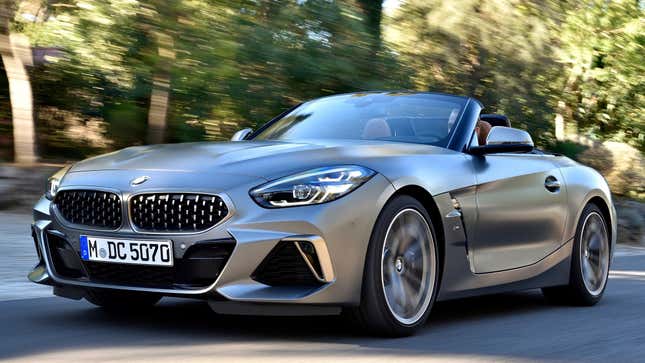
BMW is the last of the German manufacturers to report how it did in April, May, and June, and the news, like it has been for everyone else, wasn’t good. For the first time since 2009, BMW lost money.
That loss would be a very metal 666 million euros, or about $790 million, for the second quarter. BMW did also say that it still expects to have a full-year profit for after this cursed year ends, according to Bloomberg. That was in large part because of car sales being off about quarter compared to this time last year.
Still, BMW thinks it’s starting to see a rebound. Per Bloomberg:
The company’s automotive sales increased “significantly” in July from a year earlier, Chief Executive Officer Oliver Zipse said Wednesday during a call with reporters. Both the U.K. and France reported rising new-car registrations last month.
BMW’s last quarterly loss came amid the fallout from The Great Recession. BMW’s issues in the current day are both because of the economy and the pandemic but also partly to do with something it could have foreseen: the move to electric, which BMW has spent all of these intervening years with half-starts but is now finally committed to.
That move is in part because of regulations in Europe, and while BMW has said it will offer fully-electric versions of the 5 Series, 7 Series, and X1, it said it will also offer diesel, gasoline, and hybrid versions of those cars as well. BMW is calling this “the power of choice,” but I’m guessing all those different powertrains won’t be available in every market across the world.
BMW also has i3, i4, and the iNEXT either already here or will arrive by the end of next year. And I don’t know if BMW having more electric stuff to sell right now would’ve saved its bacon this quarter, but it would’ve helped.
From today’s BMW release:
Despite the overall sales volume decline, the number of electrified BMW and MINI vehicles delivered to customers rose to 61,652 units (+3.4%) in the six-month period. The ongoing expansion of the model range is expected to result in further growth in this area in the second half of the year.
That is a small amount of cars relative to total sales in that timeframe, or a little over six percent, but BMW also said that in 10 years’ time it wants to have over seven million electrified BMWs on the streets, and two-thirds of those fully-electric. That would average out on an annual basis to less than half the number of cars BMW sold in total last year, but it’s a start. Well, the electric Minis, the electric 1 Series, as well as the i3 and i8 were all starts, too, but you’re never too late to get things going again, I guess.